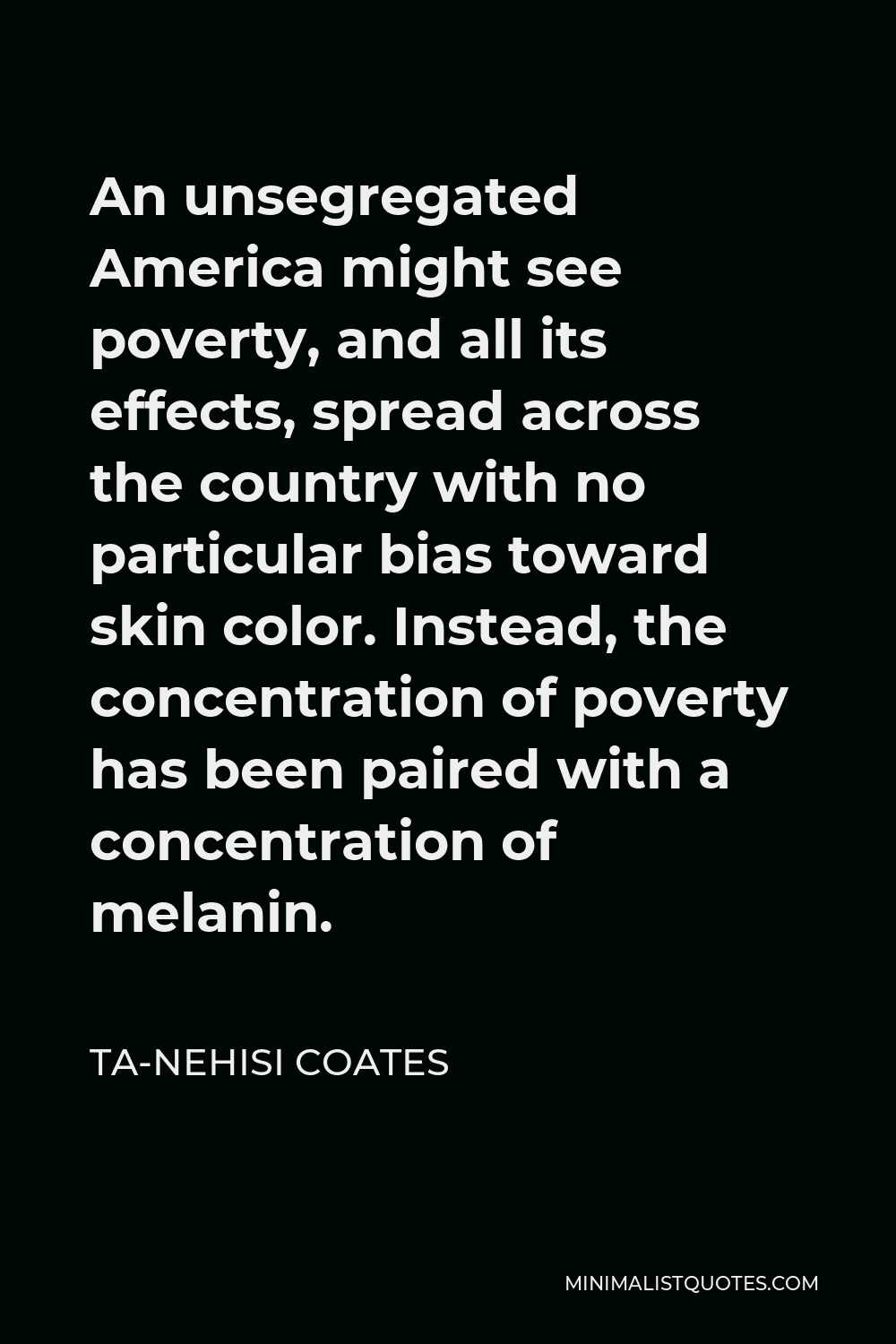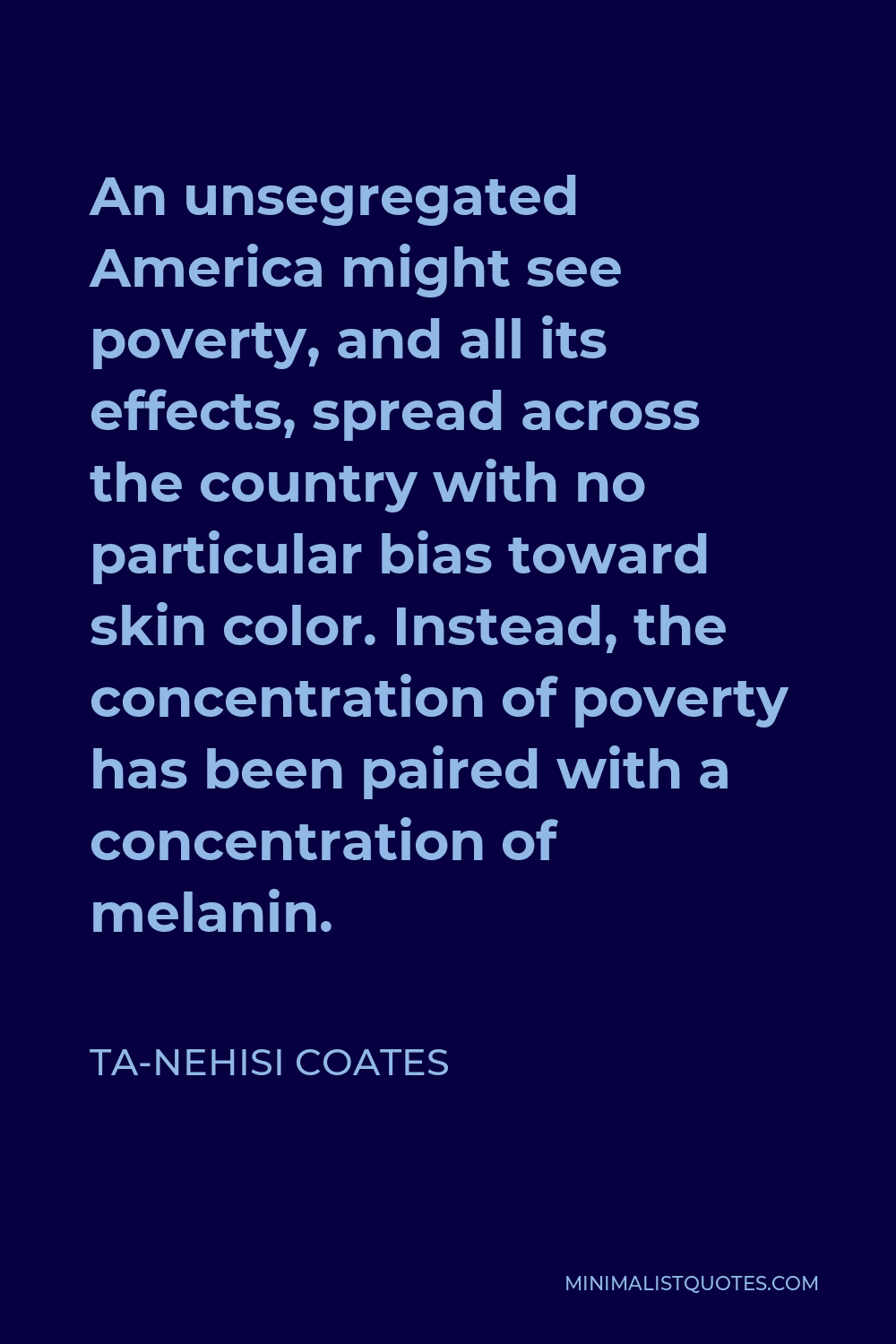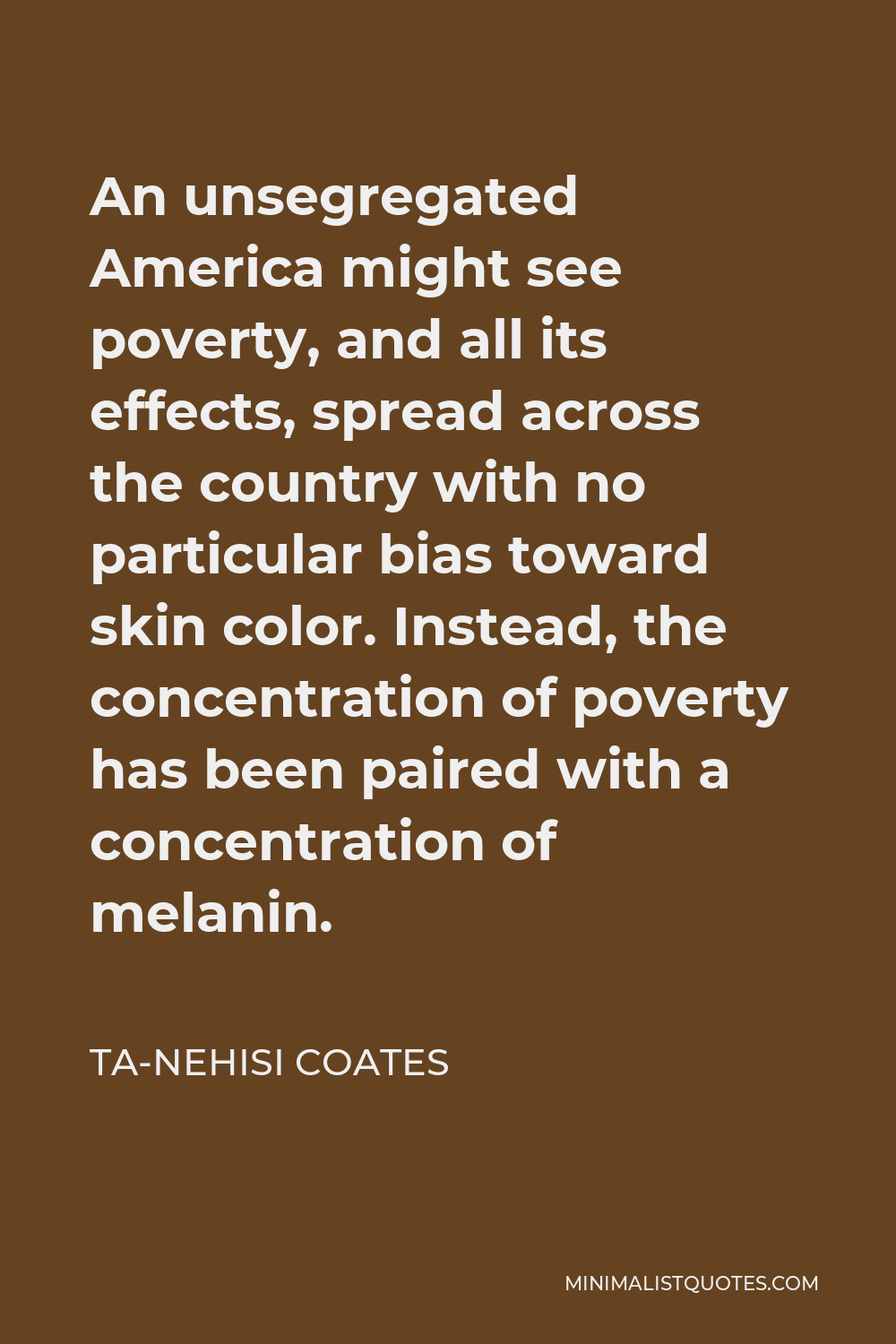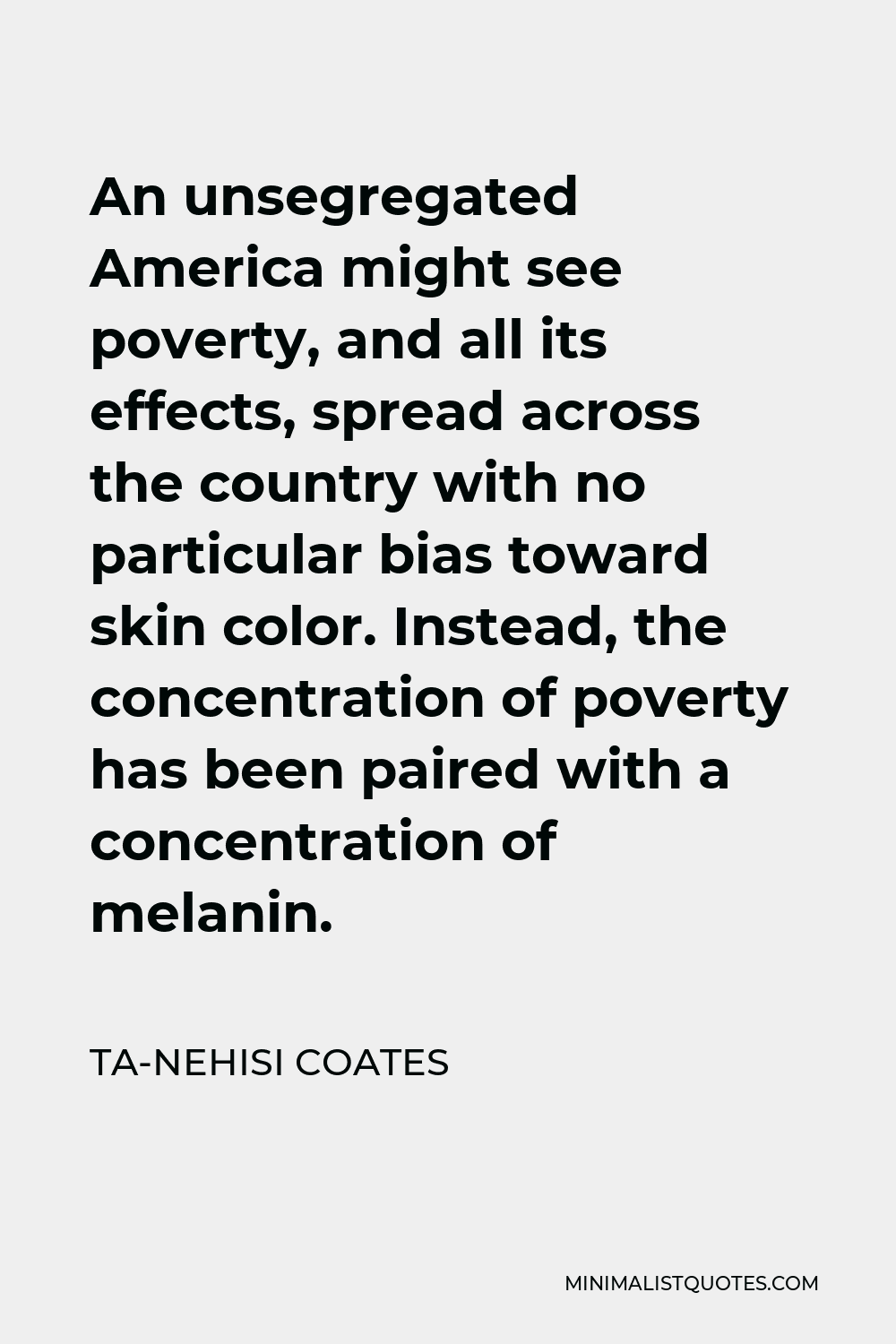Never forget that for 250 years black people were born into chains-whole generations followed by more generations who knew nothing but chains.
TA-NEHISI COATESAn unsegregated America might see poverty, and all its effects, spread across the country with no particular bias toward skin color. Instead, the concentration of poverty has been paired with a concentration of melanin.
More Ta-Nehisi Coates Quotes
-





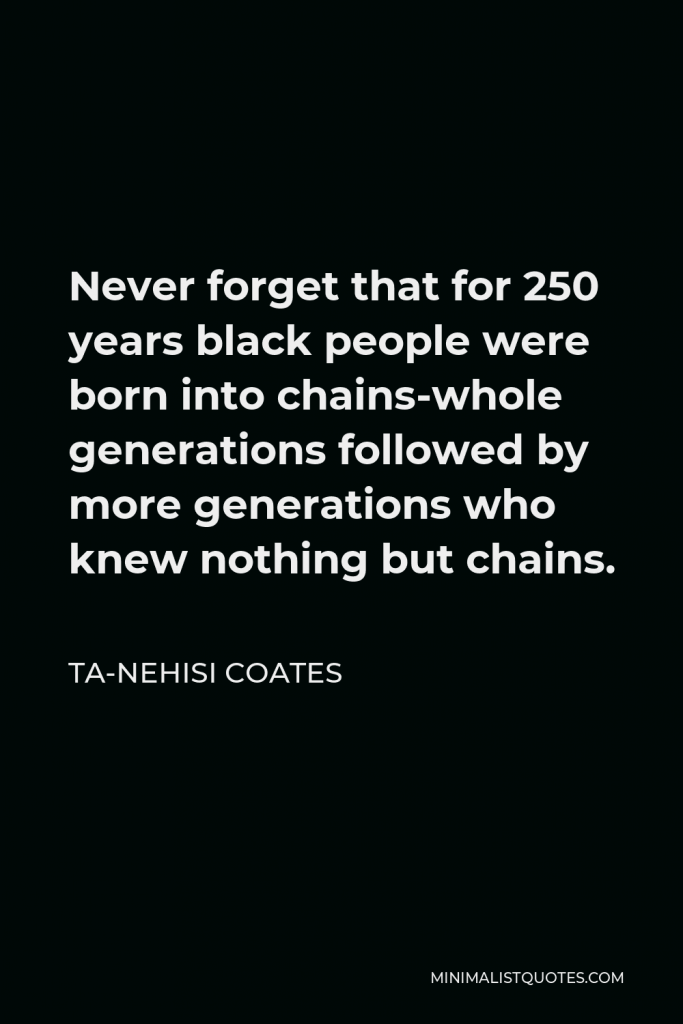

-





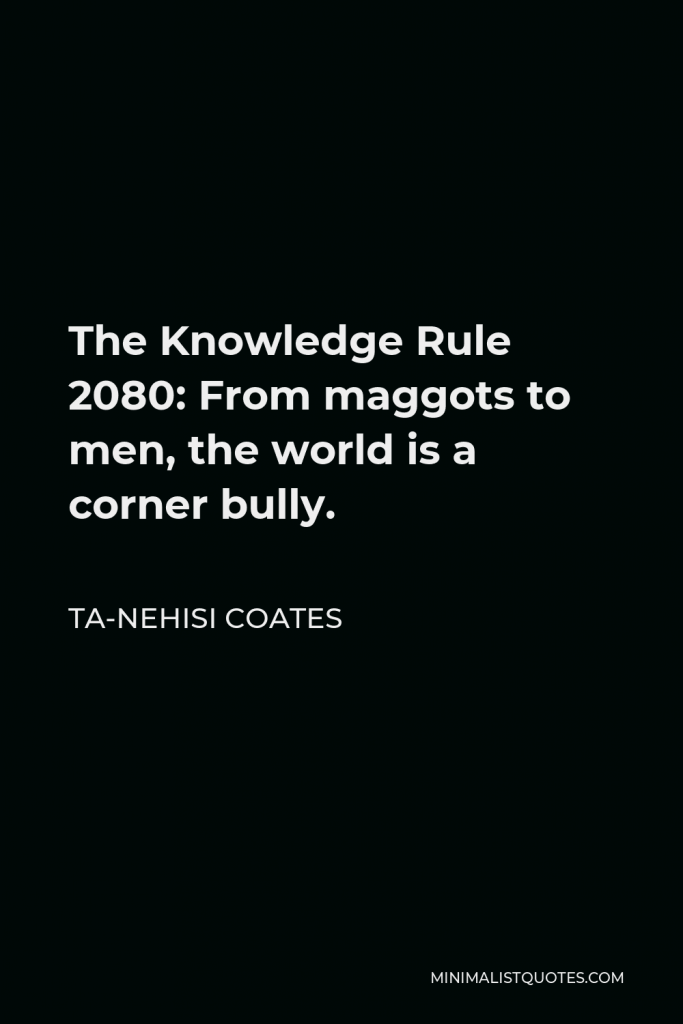

The Knowledge Rule 2080: From maggots to men, the world is a corner bully.
TA-NEHISI COATES -





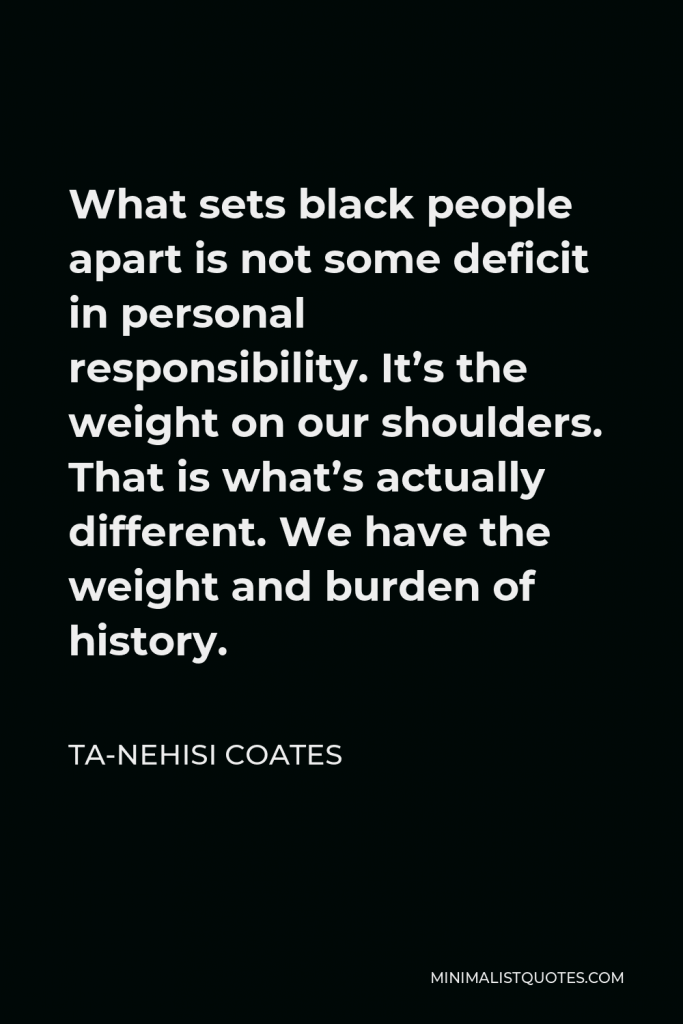

What sets black people apart is not some deficit in personal responsibility. It’s the weight on our shoulders. That is what’s actually different. We have the weight and burden of history.
TA-NEHISI COATES -





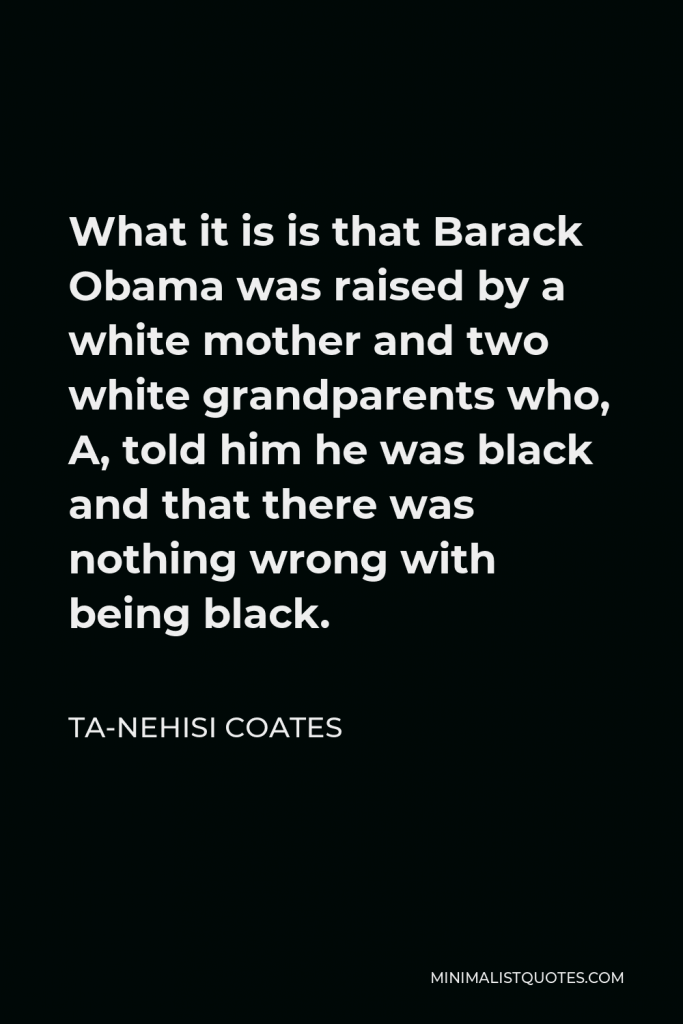

What it is is that Barack Obama was raised by a white mother and two white grandparents who, A, told him he was black and that there was nothing wrong with being black.
TA-NEHISI COATES -





![Ta-Nehisi Coates Quote - [Winning the White House was an achievement], but as an African-American, [Barack Obama], I think the symbolism is in how he conducted himself.](https://minimalistquotes.com/wp-content/uploads/2022/10/winning-the-white-house-was-an-achievement-but-as--683x1024.jpg)

[Winning the White House was an achievement], but as an African-American, [Barack Obama], I think the symbolism is in how he conducted himself.
TA-NEHISI COATES -





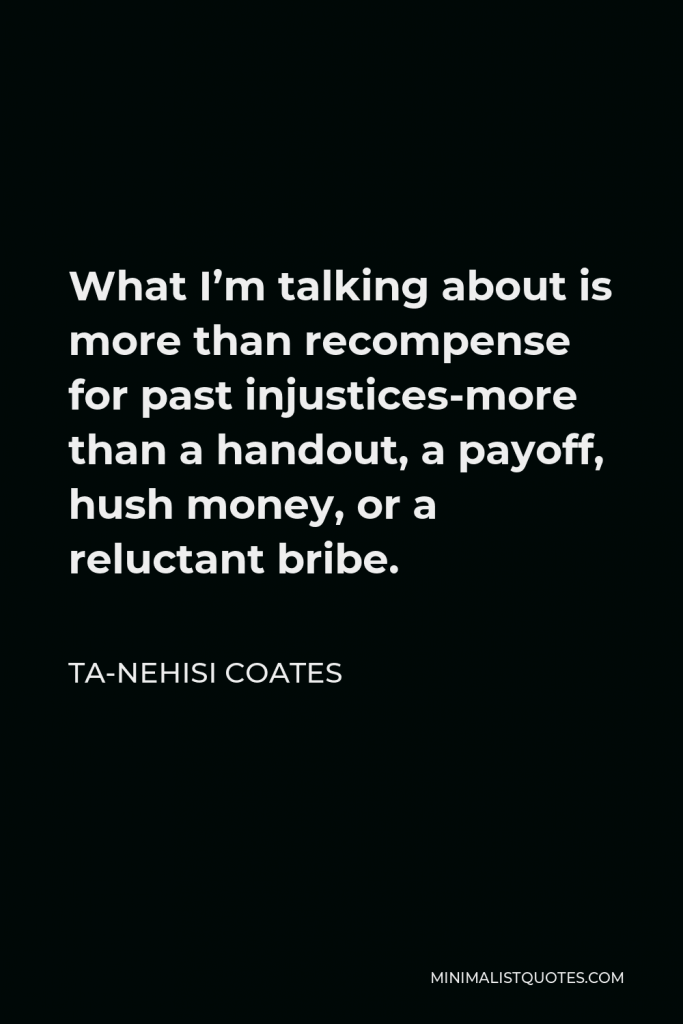

What I’m talking about is more than recompense for past injustices-more than a handout, a payoff, hush money, or a reluctant bribe.
TA-NEHISI COATES -





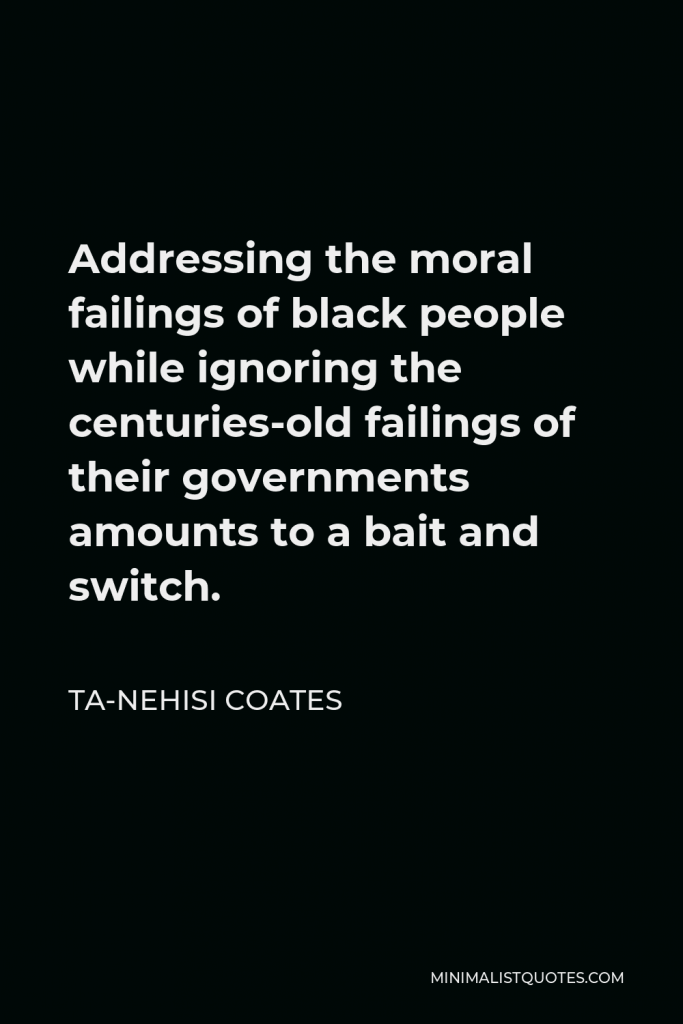

Addressing the moral failings of black people while ignoring the centuries-old failings of their governments amounts to a bait and switch.
TA-NEHISI COATES -





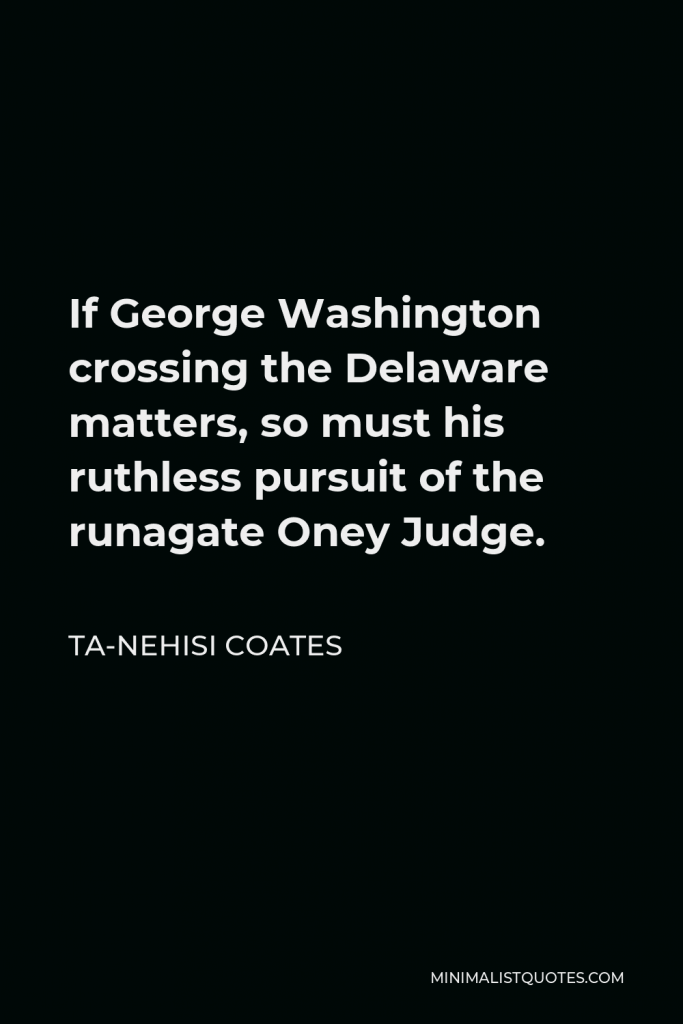

If George Washington crossing the Delaware matters, so must his ruthless pursuit of the runagate Oney Judge.
TA-NEHISI COATES -





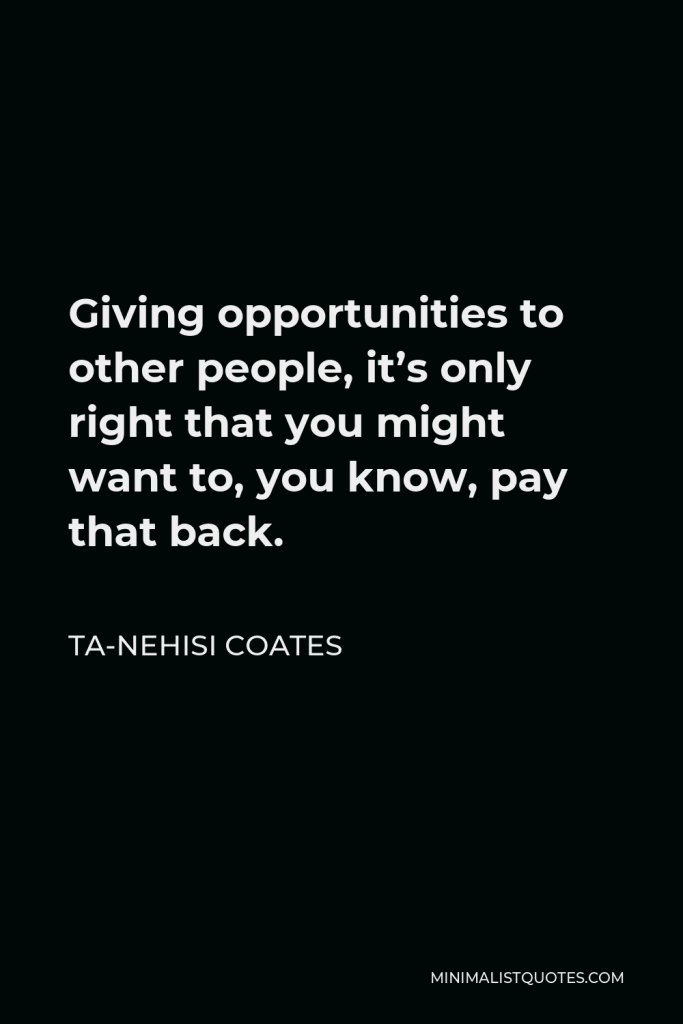

Giving opportunities to other people, it’s only right that you might want to, you know, pay that back.
TA-NEHISI COATES -





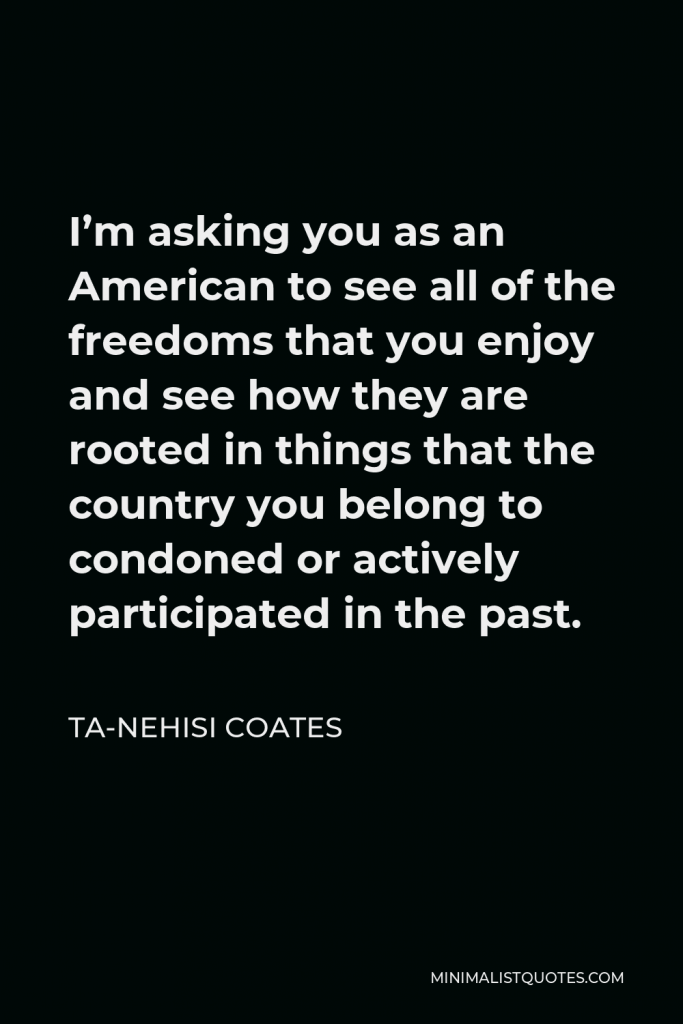

I’m asking you as an American to see all of the freedoms that you enjoy and see how they are rooted in things that the country you belong to condoned or actively participated in the past.
TA-NEHISI COATES -





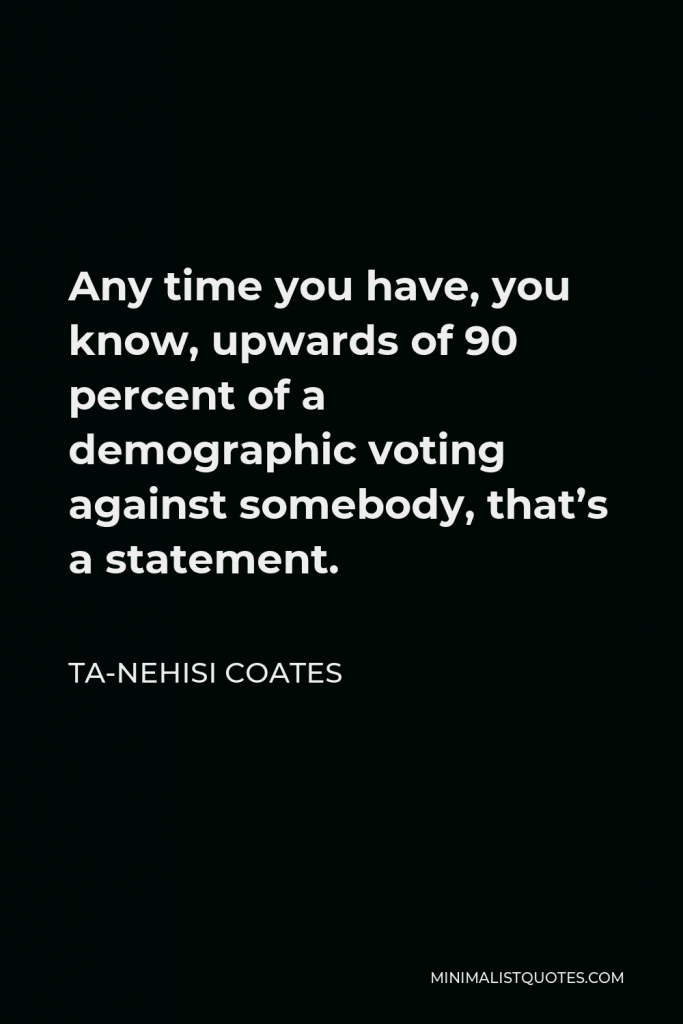

Any time you have, you know, upwards of 90 percent of a demographic voting against somebody, that’s a statement.
TA-NEHISI COATES -





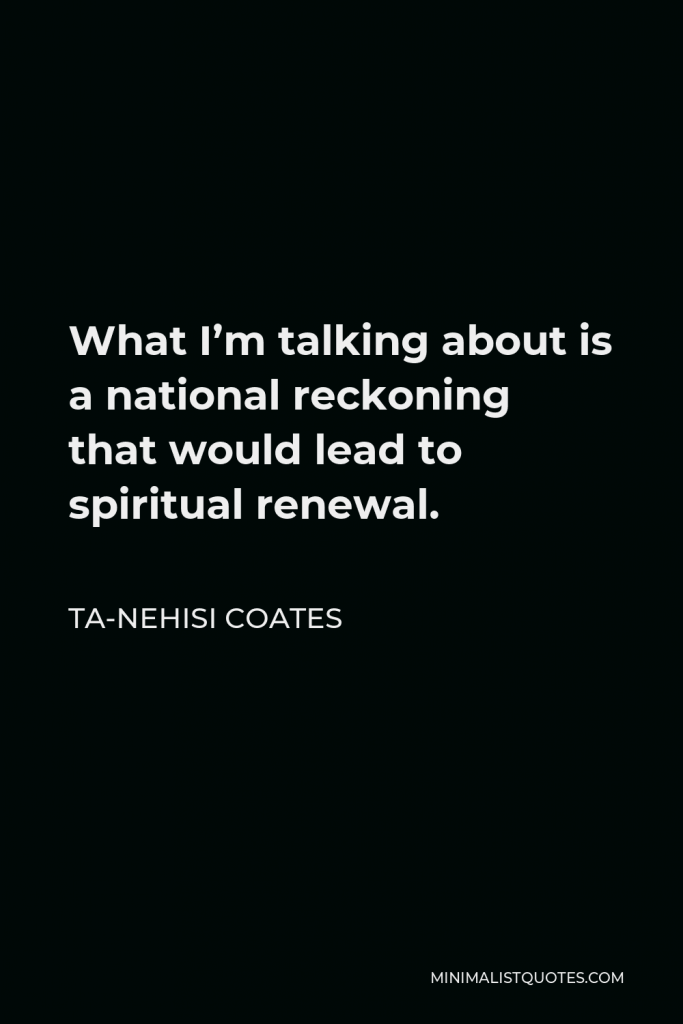

What I’m talking about is a national reckoning that would lead to spiritual renewal.
TA-NEHISI COATES -





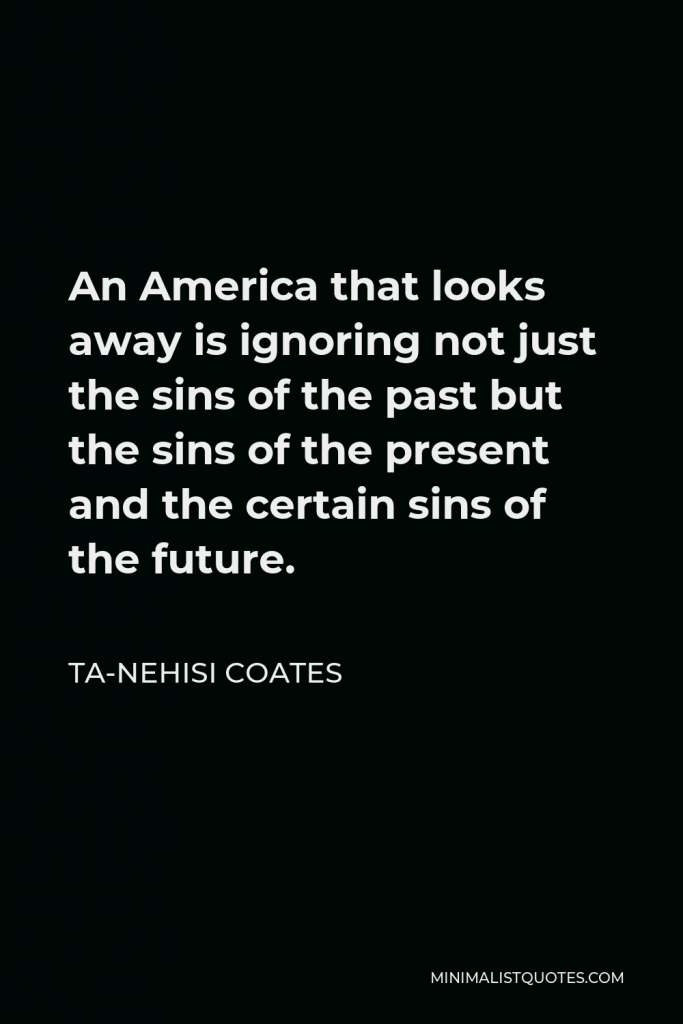

An America that looks away is ignoring not just the sins of the past but the sins of the present and the certain sins of the future.
TA-NEHISI COATES -





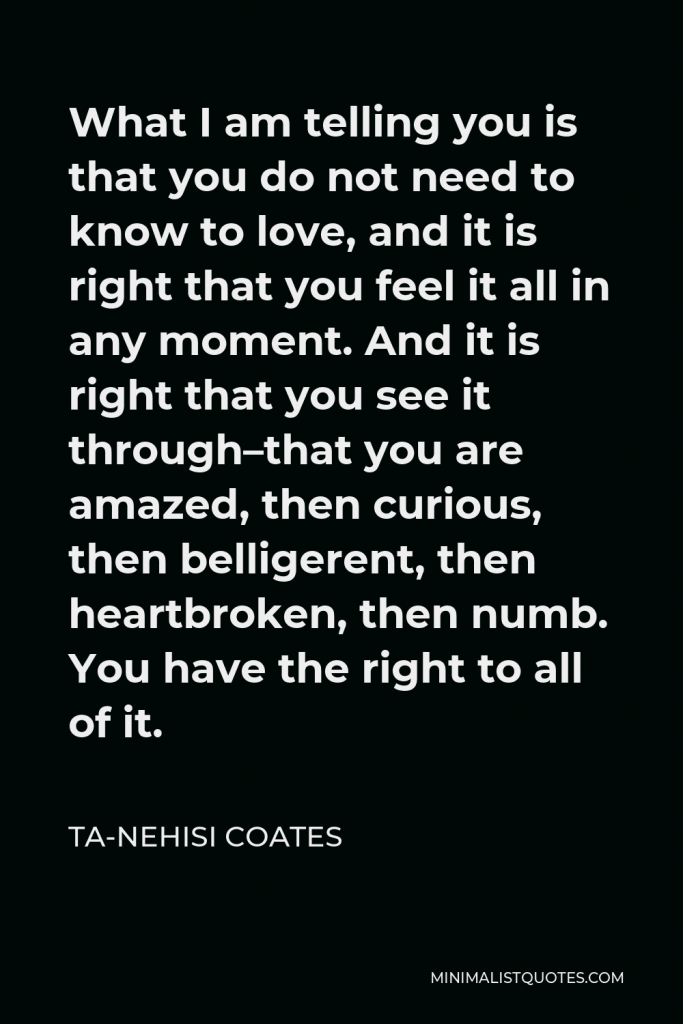

What I am telling you is that you do not need to know to love, and it is right that you feel it all in any moment. And it is right that you see it through–that you are amazed, then curious, then belligerent, then heartbroken, then numb. You have the right to all of it.
TA-NEHISI COATES -





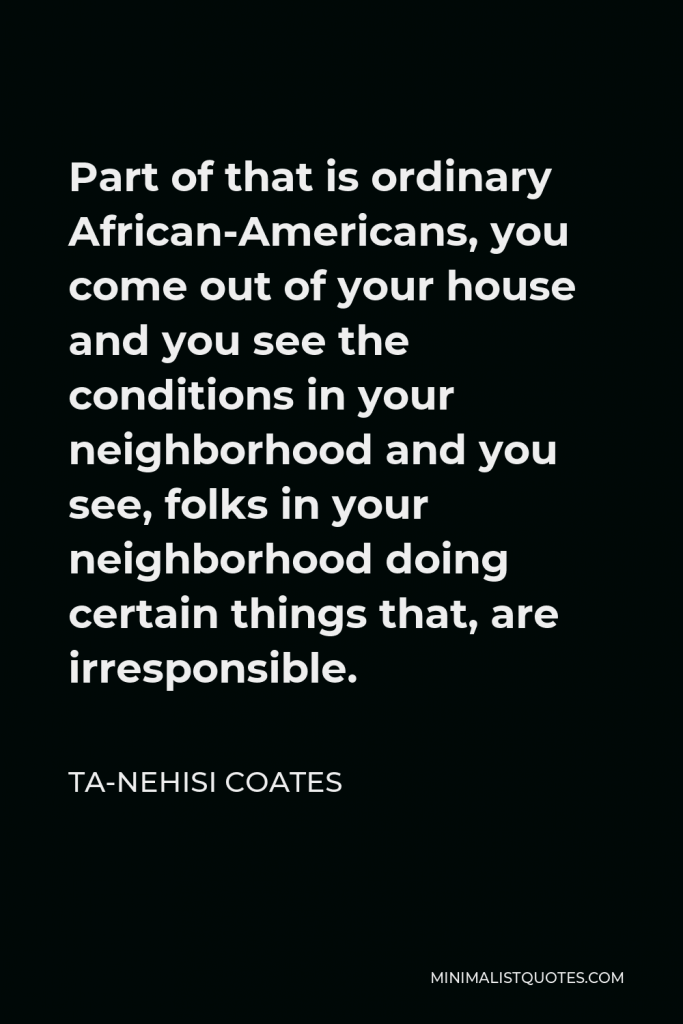

Part of that is ordinary African-Americans, you come out of your house and you see the conditions in your neighborhood and you see, folks in your neighborhood doing certain things that, are irresponsible.
TA-NEHISI COATES -





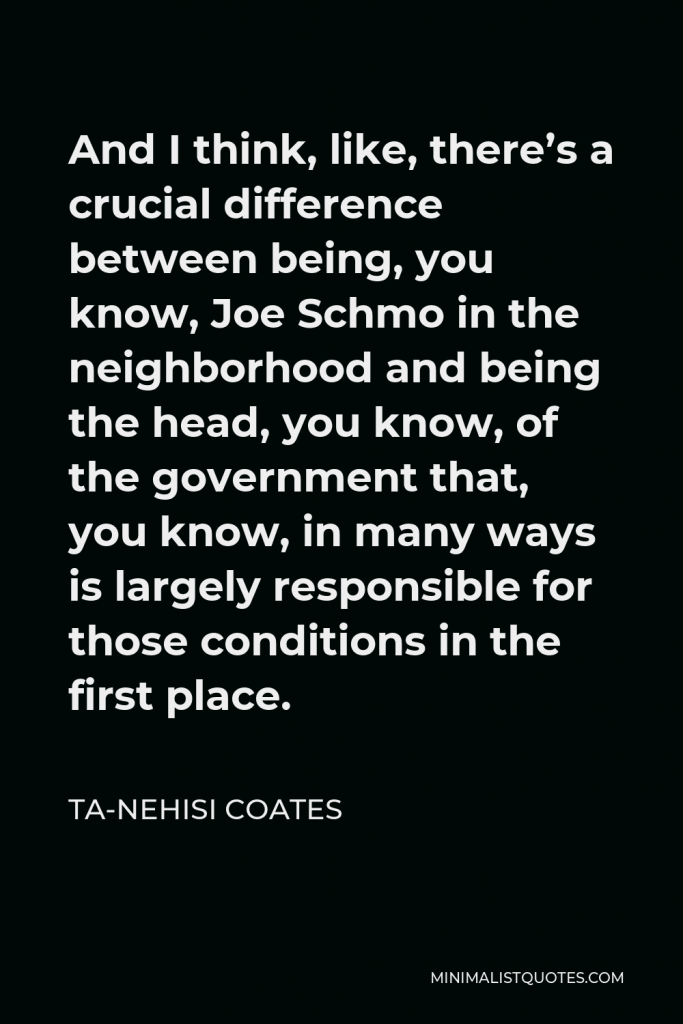

And I think, like, there’s a crucial difference between being, you know, Joe Schmo in the neighborhood and being the head, you know, of the government that, you know, in many ways is largely responsible for those conditions in the first place.
TA-NEHISI COATES
